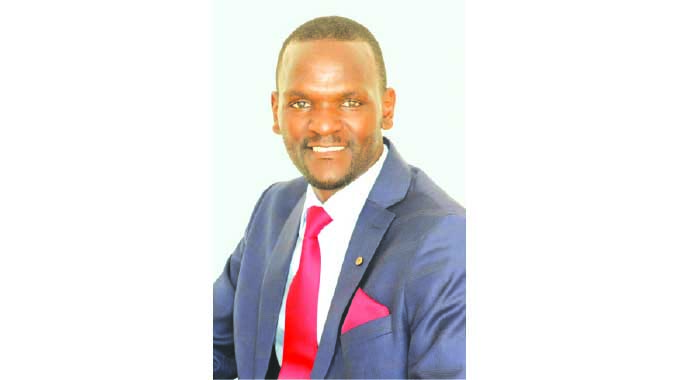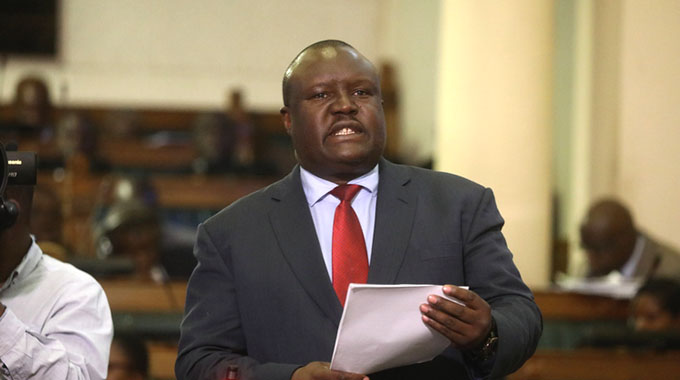Galvanising masculinity to end gender-based violence

Ruth Butaumocho
African Agenda
Two years ago, a joke of a purported Men’s Conference started trending on various social media platforms in Zimbabwe, particularly in the month of February, to coincide with Valentine’s Day.
The fake lists of would-be attendees was often made up of well-known local celebs and socialites, who were claiming to have had enough with gifting women on the dreaded Valentine’s Day, and wanted to be away from home to attend the Men’s Conference.
It was going to be at this important symposium that never was — where men were going to exchange notes on handling their wives and girlfriends, instead of buying them lavish gifts on February 14 of every year.
For a good two years, men would “attend” this imaginary event-all from the comfort of their devices.
True to the adage which says “words have power,” this time, men need not imagine, dream or talk about an imaginary symposium, but now have an opportunity to attend an actual global Men’s Conference to be held today.
The conference, organised by the African Union, which will be held using a hybrid modality conference in Kinshasa is expected to bring together thousands of men across Africa to discuss the role they can play in ending violence against women and girls in Africa.
The persistence of violence against women and girls in Africa is mainly associated with gender power relations reflected in well and commonly ascribed and accepted social norms, entrenched in patriarchal systems.
Men are the custodians of patriarchal and other structural systems that put them in positions of power, making it easier for them to abuse women, without society questioning anything.
More often than not, such male dominance in societal structures often results in male dominance, unequal distribution of resources and power combined with social institutions that sustain gender inequality.
When that happens, women and girls often find themselves at the mercy of a section of the society, which perpetuates gender stereotypes and norms that disadvantages them and promote violence and abuse.
Although there have been concerted efforts by countries and organisations to end violence against women and girls, the results have not been pleasing.
Violence against women and girls in Africa remains the most widespread and socially tolerated practice, cutting across borders, race, class, ethnicity and religion.
Girls are being married off before they get into the teens, while some are used to pay off the avenging spirits (kuripa ngozi).
On the other hand, women are sexually abused, pimped, sold off as sex slaves to rich male bidders in some parts of Africa.
Those living with intimate partners or are in unions or marriages are physically assaulted, denied economic rights and are also being elbowed out from the political arena.
Across Africa in particular, gender data showed exacerbated gender inequalities under Covid-19, placing women and girls at greater risk of being victims of violence.
There has been a clear rise in female violence over this period, with both different and similar manifestations in many countries during the lockdowns necessitated by the pandemic.
In Africa, there has been a dramatic surge in gender-based violence cases, with a 48 percent increase in reported gender-based violence cases in East African countries, with Kenya also reporting a significant spike in rape and defilement cases, according to a joint report by the African Union (AU) Commission, the United Nations Population Fund (UNFPA), the UN Office of the High Commissioner for Human Rights (OHCHR) and UN Women.
Southern Africa also recorded a surge in gender based violence against women and girls during Covid-19 induced lockdowns.
It is against this background that the African Union wants to involve men in leadership and engage other men and boys in efforts to end violence against women and girls in Africa.
The decision to involve men in the dialogue is not only necessary, but also critical to transforming structural and institutional inequalities that lead to violence against women and girls.
In coming up with this symposium, the African Union feels that the involvement of men will create a deeper understanding and personal commitment from men in Africa to end violence against women and girls by male leadership in the continent because of the buy in.
It is hoped that the conference will result in political commitment to adopt and ratify the violence against women and girls convention, which the AU is trying to push at different channels and platforms.
However, noble as it may sound, the outcomes of the Men’s Conference, should not be implemented in isolation, but would need to be incorporated in existing global activities to end violence against women.
Currently, several countries do have grassroots organisations that deal with gender-based violence, but their membership is predominantly female.
Such kind of organisations would thrive better if men are also co-opted to ensure there is unity of purpose and sharing of ideas on which strategies work better in curbing violence.
Once men are involved, communities which are largely led by men, quickly embrace those within their structures, whilst asking everyone to rally behind them.
The involvement of men at community level can then be a basis of establishing standards, pushing for the implementation of already existing protocols, as well as ensuring best practice at national level, thereby lending these legislative pieces more weight and ensuring that the discourse of violence against women and girls is not dismissed and given the “feminist” tag, yet it is a critical human rights issue.
The nation now calls on men to become the game changers by coming out strongly against gender-based violence to ensure a violent free society.
Being custodians of leadership — either by design of default — they are in positions of power and influence to put an end to gender-based violence.
As Africa joins the rest of the world in commemorating 16 Days of Activism against Gender Based Violence, there is need to raise our boys the way we are raising our daughters.
With the world warming up to gendered leadership, most parents now want their daughters, nieces and cousins to take up courses that were once regarded as a male preserve.
They now want their daughters to break the glass ceilings and aim higher, far beyond what other girls ever thought would be achievable 20 years ago.
It is within the space that boys or men should also learn and appreciate the positive attributes of women or girls so that they begin to co-exist and appreciate their differences.
African women now need to raise sons to behave like daughters by telling them that violence and all forms of abuse are social vices that should be condemned, and once that has been achieved, we are assured of men’s buy in, in the fight against gender based violence.
Men’s involvement in gender programming is a crucial buy-in process, which ensures that both boys and men become active agents of change.
They will have every reason to advocate and enable the process because they know accrued benefits will eventually cascade to both sexes in the long run, stemming from a shared vision and an undying passion to co-exist.
Feedback: [email protected]









Comments